Comarch EDI Ready for Obligatory
e-Invoicing in Poland!
Learn how you can send & receive structured invoices to/from the National System of e-Invoices (KSeF) using our platform
On the GK Comarch websites, both we and our partners use cookie files and targeting. Cookie files (a.k.a. "cookies") are small text files sent to your browser by the site you visit at any given time. They are used for analytical and statistical purposes as well as to ensure the proper functioning of the site. Additionally, they are used to tailor marketing content to the interests of users visiting our sites.
As we respect your privacy, we ask for your consent to use these technologies. You can consent to cookies by clicking "Accept all". If you want to personalize your choices, click "Settings." You can withdraw your previous consent or change your preferences at any time by clicking the "Settings" button.
Using cookies for the purposes indicated above is related to the processing of your personal data. The administrator of your data is Comarch SA. In some cases, our partners may also be the administrators of your data.
For more information on how we and our partners use cookies and process your personal data, please see our Data Processing Notice and Cookie Policy.
Learn how you can send & receive structured invoices to/from the National System of e-Invoices (KSeF) using our platform

The National System of e-Invoices (KSeF), the official e-invoicing platform of Poland, is expected to become a mandatory document exchange solution in 2023.
If you do business in Poland, you need to prepare your company so that it's fully compliant with the new regulations. Below you can find the answers to frequently asked questions about the system.
KSeF (Polish abbreviation for Krajowy System e-Faktur) is a national system introduced with the Polish law on the amendment of the Value Added Tax Act and further laws of October 29, 2021 [Ustawa z dnia 29 października 2021 r. o zmianie ustawy o podatku od towarów i usług oraz niektórych innych ustaw]. The system’s aim is to enable issuing and receiving structured invoices.
Yes. The system was introduced as a facultative solution on January 1, 2022.
At first KSeF was about to be introduced in April 1, 2023, nevertheless Poland requested the postponement of this date. The Council of the European union has granted the request, authorizing Poland to introduce mandatory e-invoicing from 1 July 2024. During a press briefing on January 19th 2024 Poland’s Minister of Finance announced a postponement of the National e-Invoice System (Krajowy System e-Faktur, KSeF) obligation introduction.
Krajowy System e-Faktur is addressed to all enterprises in Poland, i.e. companies subject to turnover tax, companies exempt from turnover tax, and companies that are subject to the special EU regulation “One-stop shop” (OSS) in Poland and have a Polish tax identification number (NIP).
The use of KSeF offers numerous advantages to taxpayers. In particular, the settlement of structured correction invoices will be facilitated, the obligation to provide invoices in JPK format (Jednolity Plik Kontrolny [Polish for: standard audit file]) will be omitted, the turnover tax will be refunded sooner, and invoices will be archived in KSeF over a period of ten years.
Structured e-invoices can be created by customer companies as before by using financial accounting systems or by means of a dedicated website.
Foreign partner companies are not obliged to use KSeF. Therefore, it is the responsibility of the taxpayer to provide structured invoices to such business partners. However, when Comarch EDI was integrated with KSeF, an option was included enabling users to provide structured e-invoices (after they have been created in KSeF and been assigned an identification number) to foreign business partners specified by the customer.
No, KSeF does not offer any option to send invoice attachments. Due to the integration of Comarch EDI with KSeF, users have the possibility to send attachments together with the structured invoice previously issued in KSeF to the business partners specified by the customer.
An invoice is classified as issued on the day when it was transmitted to KSeF. The issuer of the e-invoice gets an official acknowledgement of receipt [Polish: Urzędowe Poświadczenie Odbioru; UPO] as confirmation by KSeF.
The invoice is classified as received on the day when it was assigned an identification number by KSeF.
After the structured invoice has been transmitted by Comarch EDI KSeF to KSeF, it usually takes a few minutes up to several hours until the official acknowledgement of receipt (UPO) is sent by KSeF.
Comarch EDI KSeF is a service dedicated to such customers looking for a solution integrated with KSeF.
Can Comarch EDI only be used to transmit EDI invoices to KSeF?
No. The Comarch EDI KSeF service is addressed to all companies that are going to use KSeF in the future; therefore, it comprises all invoice formats and not only EDI invoices.
To authorize taxpayers in KSeF, the Comarch EDI KSeF service uses an authorization token.
Yes. When using the Comarch EDI KSeF service, any and all acknowledgements generated by KSeF, including the official acknowledgement of receipt (UPO), are transmitted to the taxpayer. Those acknowledgements, including UPO, can also be retrieved via the dedicated applications Comarch EDI Tracking and Comarch EDI Archive.
Comarch EDI KSeF offers comprehensive support for the implementation and use of KSeF. In addition to the reciprocal transmission of invoices, i.e. providing invoices to KSeF in order to issue them in this system and retrieving structured invoices from KSeF, customers will benefit from further options:
You have several possibilities to connect to KSeF through Comarch EDI KSeF – starting with the dedicated website that enables the provision of electronic invoices to KSeF and the retrieval of such invoices from KSeF right through to the integration of internal systems.
How long does it take to transmit invoices to KSeF using Comarch EDI KSeF?
After structured invoices haven been provided by the customer to Comarch EDI KSeF, they will be sent immediately to KSeF.
For more information about when KSeF will become mandatory and who has to issue structured invoices, visit the following website:
Questions and answers – KSeF (podatki.gov.pl)

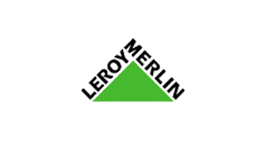







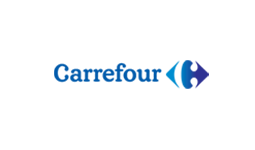











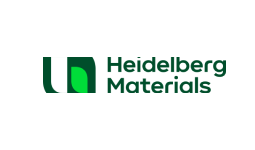

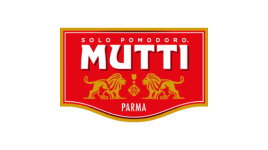
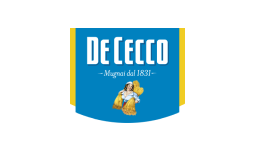
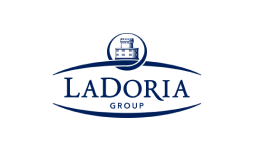
Click on the button to get in touch with one of our experts